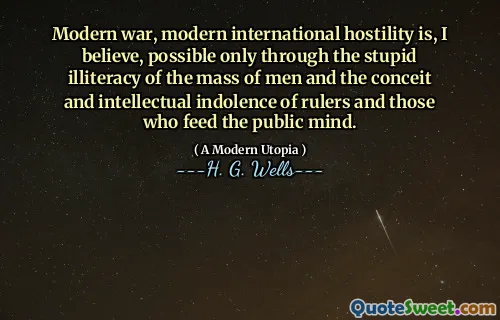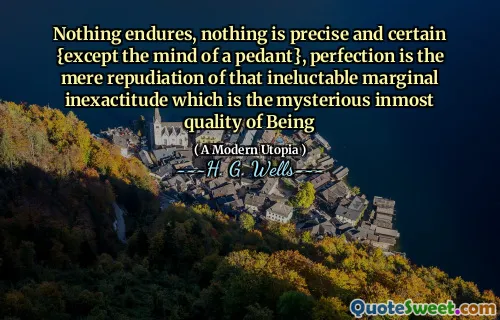"A Modern Utopia," written by H.G. Wells, is a thought-provoking exploration of an ideal society where humanity has achieved balance and harmony. Set in a world that mirrors the realities of his time, Wells presents a vision of a society governed by rationality and cooperation among its inhabitants. Central to this utopia is a commitment to science, ethics, and a structured community, where individuals are encouraged to contribute to the greater good.
The book delves into various aspects of life in this utopian world, including education, governance, and social relations. Wells offers an insightful critique of contemporary issues such as class inequality and poverty, suggesting that the path toward a better world involves collective effort and the application of reason. The citizens of this utopia work together to create a society that prioritizes not just individual success, but the well-being of the entire community.
Wells emphasizes the importance of adaptability and innovation in achieving a modern utopia. He argues that personal identity should harmonize with the collective identity of society, allowing for progress without sacrificing individuality. Through this narrative, Wells prompts readers to reflect on the challenges of their own society and the potential for a brighter future through cooperative ideals and enlightened governance.
More »
Today Birthdays
1955 -
Max Lucado
1946 -
John Piper
1842 -
William James
1907 -
Abraham Joshua Heschel
1887 -
Aldo Leopold
1755 -
Alexander Hamilton
1976 -
Alethea Kontis
1971 -
Mary J. Blige
1825 -
Bayard Taylor
1943 -
Jim Hightower
1885 -
Alice Paul
1923 -
Carroll Shelby
1928 -
David L. Wolper
1954 -
Kailash Satyarthi
1972 -
Amanda Peet
1946 -
Naomi Judd
1970 -
Malcolm D. Lee
1955 -
Christian Marclay
1973 -
Rahul Dravid
1987 -
Jamie Vardy
1942 -
Clarence Clemons
1992 -
Fatima Sana Shaikh
1948 -
Larry Harvey
1930 -
Rod Taylor


